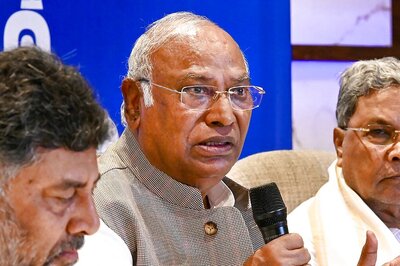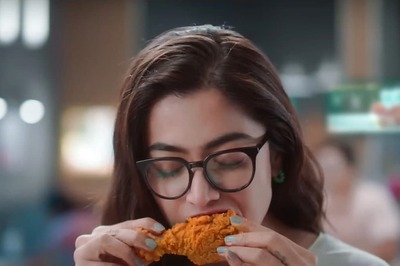
views
An age-old tale of a treasure trove will get a legal twist on Monday when the Supreme Court decides if a tale of yore, drenched in profanity and boundless imagination, can still keep the Vault-B of Kerala’s Shree Padmanabhaswamy Temple closed.
A bench of Justices Uday U Lalit and Indu Malhotra has this unique question to decide about one of the most revered temples in India.
In 2011, a team mandated by the Supreme Court opened five other vaults (kallaras). Their inventory unveiled a wealth of Rs 1 lakh crore in the form of jewellery, idols, weapons, utensils and coins.
But the enigmatic legend of Vault-B kept even this expedition at bay. The lore kept living that hooded King Cobras with forked tongues — coiled and ready to strike at lightning speed — protect this chamber. This is the vault that spells doom for those who dare open it.
A book titled ‘Travancore: A guide book for the visitor’ by Emily Gilchrist Hatch had also recalled that a group of people who tried to open the vaults in 1931 had to flee for their lives when they found the place infested with cobras.
The myth was sought to be dismantled by former Comptroller and Auditor General (CAG) Vinod Rai, who was appointed to conduct a special audit of the temple’s wealth. Rai, in his report in 2014, told the Supreme Court that Vault-B had been opened at least seven times to his knowledge since 1990.
Referring to the records and receipts maintained by the temple authorities, Rai pointed out that Vault-B was opened twice in 1990 and five times in 2002. “Silver ingots were taken out and gold vessels were deposited and subsequently taken out, as evidenced from the entries in the Mahassar Books and other registers maintained by the treasurer of the temple and as produced before the audit team,” he said.
Rai’s report favouring scrutiny and verification followed the similar views expressed by senior lawyer Gopal Subramanium, who was appointed as amicus curiae by the apex court.
Subramanium had pointed at stealth of the temple’s assets in an organised manner "by the highest echelons,” and asked for completely disassociating the erstwhile family of Travancore from the management of the temple.
The report by the amicus criticised the way in which the temple was being administered by the royal family of Travancore, which is the trustee of the temple. "It appears there is a large-scale breach of moral and fiduciary duties towards Shree Padmanabhaswamy and the temple. The temple, which is a public temple, has been treated for all effects and purposes as a private fiefdom," it said.
Subramanium recommended a new committee for the temple management – another important aspect that the court verdict will rule upon.
In view of these reports, the judges have been called upon to decide if there is a need to set up an autonomous devaswom board, like the one for Sabarimala temple, which manages temples and has nominees from community as well state government. This decision will in turn also decide the royal family’s rights on the temple and its assets.
Some of the devotees have also pressed for the constitution of a board to manage the temple while contending that the last ruler of Travancore passed away in 1991 and therefore, continuation of management of the temple cannot be with the family any longer.




















Comments
0 comment